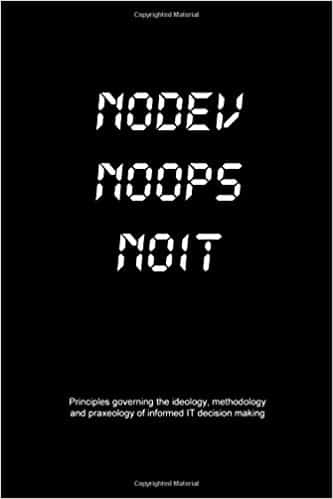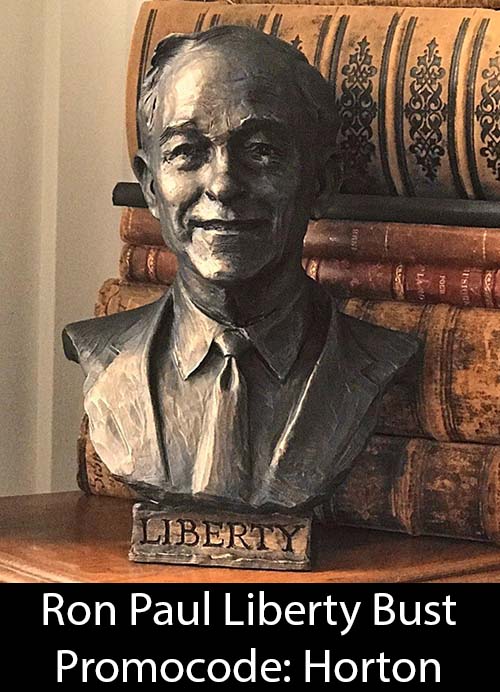Blogger Marcy Wheeler discusses the start of Bradley Manning’s “speedy” trial after three years in detention; the government’s case against Manning and Julian Assange as co-conspirators engaged in espionage; why Bob Woodward and top government officials are never prosecuted for leaking and publishing classified information; and how Manning’s careful selection of documents to leak (to avoid getting “blood on his hands”) has made his prosecution easier.
Scott Horton Interviews Marcy Wheeler
The Scott Horton Show
June 5, 2013
Transcript (Page down for the audio)
Scott Horton: All right, y’all, welcome back to the show. I’m Scott Horton. The website is scotthorton.org, streaming live here from 11 to 1 Texas time, noon to 2 Eastern at scotthorton.org and at noagendastream.com, also at talkstreamlive.com. And you can follow me on Facebook, Twitter and YouTube at /scotthortonshow. All right, so first up today on the show is our friend Marcy Wheeler, emptywheel she’s called in the blogosphere because that’s the name of her blog, emptywheel. It’s at emptywheel.net. Welcome back, Marcy. How are you doing?
Marcy Wheeler: Good. How are you, Scott?
Scott Horton: I’m doing great. I really appreciate you joining us on the show today.
Marcy Wheeler: Absolutely.
Scott Horton: All right. So let’s talk about Bradley Manning. Now I know you’re not there actually covering the trial, but I do know that you’re reading as much as you can about it and probably making more sense about it all than anybody else, so I guess could we start with celebrating the fact that he’s actually getting a trial now after three years held without one.
Marcy Wheeler: Right. I mean, he’s been in custody, at times in illegal, in solitary confinement, for three years, so he’s been waiting a while for his day in court.
Scott Horton: Now, I guess — how rare is it for someone to be held for so long without a trial, and then if this kind of thing does happen because of an oversight or some kind of mistake or a prosecution foot-dragging or something, do people ever get set free for not really getting a speedy trial these days?
Marcy Wheeler: No, not really.
Scott Horton: Or do they just get one, and so it’s not really an issue, or what?
Marcy Wheeler: No, and in this case a significant amount of the delays came in the government trying to get a bunch of classified information to the defense. So in other words, the delays came from the government foot-dragging on classified information, yet because they were able to tell the judge that it was all because it was a very complex case, they were able to foot drag.
And behind everything, and behind even what we’ve seen so far at the trial, it’s worth remembering that Julian Assange is still out there, and by all accounts or by all appearances the government would like Bradley Manning to implicate Julian Assange, so keeping him in custody and particularly keeping him as they did for about a month, a month and a half, when was it, it was January of 2010, in solitary confinement when he didn’t need to be, keep in mind all of that, you know, might help them to get Bradley Manning to implicate Julian Assange, which he has refused to do thus far.
Scott Horton: Mmhmm. Well, now the thing is when they say, they’re trying to push this idea in his trial that he conspired with Assange, that before, I guess you know he says in his statement where he pleaded guilty to the facts of the case a little while back, he said that well he tried he Post and the Times and he didn’t hear back from them, so then he went to WikiLeaks I think — I’m sure you understand it in much more detail than I do, but, the government here is saying, at least in their opening statement, correct?, that Assange really conspired with him and made him do it. Like they’re trying to put their case against Assange out there as part of their case against Manning in order to make — I don’t know what, to smear Assange as not a journalist and to make Manning more guilty?
Marcy Wheeler: Well, they’re doing a couple of things. One is they’re trying to show that Manning was a conspirator with WikiLeaks. One of the things they’re alleging is that he helped to edit the Collateral [Murder] video which came out in April of 2010 — April of 2010? April of — I’ve lost track of time.
Scott Horton: Yes, yes, that’s right.
Marcy Wheeler: It was one of the first things that came out, right?
Scott Horton: Yeah.
Marcy Wheeler: And so they’re trying to say that because he edited that, which they haven’t proven in court yet, it’s not clear they can, but because he edited that he was part of WikiLeaks and therefore kind of in a conspiracy with them. Another thing they’re arguing is that Manning went to a list of WikiLeaks Most Wanted and gave them those documents. In other words, followed the directions of WikiLeaks.
And then the most interesting thing, and apparently a pretty weak argument they’re making, is that Manning started leaking information just two weeks after he got to Iraq. And that appears to be based on the existence of, this is called the Garani video, which is a video of an even bigger civilian massacre. And what appears to be happening, or what may be happening, is the government — there’s another guy who got fired for issues relating to classified information. He, according to Adrian Lamo, had it on his computer and may have been the original leaker, and the government seems to want to be arguing that Manning was involved in that earlier leak, which doesn’t seem to make sense. So in other words the government is — I mean and remember, Manning has already pled to lesser charges that would keep him in jail for 20 years. And so the big prize that the government has gone to trial to get is this aiding the enemy charge.
So there’s two things they want. They want the aiding the enemy charge. They want to depict this guy who gave you and me information we should have anyway as American citizens, they want to depict him as a traitor, as somebody aiding, and they’re going to argue that because Osama bin Laden had the information, that he was aiding Osama bin Laden and he knew that. And then the other thing, again, is that they want to establish that Julian Assange was a spy and not a journalist, using, it should be said, the same arguments that they used in the James Rosen Fox reporter case where he was cajoling people for a certain kind of information. So it’s an incredibly dangerous argument, nevertheless they’re going to trial to prove it.
Scott Horton: Right. Well now, so what is the difference in the Risen case? Is it that Manning is a military guy and not a civilian — well, the NSA, that’s the military anyway, right?
Marcy Wheeler: Right. Yeah.
Scott Horton: So there is no difference?
Marcy Wheeler: Oh, with James Rosen?
Scott Horton: Yeah — oh, I’m sorry, I thought you said Risen, so I was thinking back to now the persecution of the whistleblower in that case.
Marcy Wheeler: No —
Scott Horton: But that was the CIA guy, right?
Marcy Wheeler: — it’s hard to keep the Risens and Rosens apart. No, James Rosen is the Fox guy who leaked information on North Korea —
Scott Horton: Right.
Marcy Wheeler: — or who reported information leaked to him on North Korea. So, but I mean, but in that case, to get a warrant, so to get the content of his e-mails with the alleged leaker, the government argued in a warrant that he was a co-conspirator and leaking classified information, and so they’re basically, they used the same argument there that they’re using to try and implicate Julian Assange as a spy, and that’s the dangerous argument. In spite of the fact that DOJ in the Rosen case is as we speak claiming to Congress they would never prosecute a journalist, they’re still making these arguments in the Manning case that make it clear that they do want to prosecute journalists.
Scott Horton: Right. Well now, I guess we should always use Bob Woodward as the standard, right? Because he’s the Mouth of Sauron. He’s the guy that brings us everything official from, you know, whatever administration, if it’s the Democrats in power he says exactly what they want us to know, if it’s the Republicans in power he writes exactly what they want us to know, and he publishes all kinds of officially leaked yet not declassified by the officials type data. So I guess that’s really where we got to, you know, use him as kind of the benchmark for what he’s allowed to get away with and other journalists are not, even though the only real difference is he’s dealing in official leaks and they’re dealing in unofficial ones which are not different under the law, only politically, right?
Marcy Wheeler: Well they may be different under the law because the people who leaked to Bob Woodward are so senior — I mean, remember he got leaked to in the Valerie Plame case and certainly at least information on the NIE, and regarding that particular information, Dick Cheney basically told Scooter Libby that he basically insta-declassified it, and so I think the government would insist that everything they say to Bob Woodward is insta-declassified and therefore legal.
But with regards to the aiding the enemy case, Osama bin Laden actually went after Woodward’s books, and, you know, wouldn’t you too, because they include very detailed information. One of the details that Woodward broke — purportedly broke, it was in public court documents kind of in classified form before that — was that the CIA is training a special forces in Afghanistan that works in the borderlands of Afghanistan and Pakistan. Highly classified CIA program, covert, covered under all sorts of, you know, secret rules, and Osama bin Laden got that from Bob Woodward’s book, and yet the people who leaked to Bob Woodward that information are not being tried in the way Bradley Manning is.
And significantly, and I think this detail just came out today, one of the things that was made clear today is that some of the documents Osama bin Laden allegedly got via WikiLeaks were these Afghan cables, these Afghan — they’re not cables exactly, but they’re daily reports of events in the field that actually get pretty old pretty quickly, so they’re not all that sensitive, but more importantly in today’s testimony it became clear that actual sources, people that you’d need to protect the identities of, people who are considered credible and reliable, those are protected, they’re only referred to by number. And so whereas Bob Woodward leaked highly classified, highly compartmented information — I mean it was leaked by Bob Woodward to Osama bin Laden. What we’re talking about in Bradley Manning’s case is he would leak dated information that remained coded when Osama bin Laden got it. That’s the difference.
Scott Horton: Yeah. Well you know Obama even said, an activist asked him, ‘Well what about Daniel Ellsberg, right?,’ trying to trick him into being a Democrat and condemning Ellsberg, right, who every Democrat wants to put on Mount Rushmore for helping to end the Vietnam War and whatever. And Obama’s response was, ‘Well, those were classified differently.’ Yeah, differently, Top Secret.
Marcy Wheeler: Right.
Scott Horton: This stuff was just regular Secret and Confidential. What a joke.
Marcy Wheeler: Yeah. I mean, there’s just no, there’s no way you can credibly argue that what Ellsberg leaked was less damaging if you buy the classification standards, than what — I mean I think one of the things I find most interesting about the State Department cables is reading between State Department skepticism. So, you know, there are a couple of times when the State Department will say something and it’s clear they’re not read into the big secrets and they go, ‘Yeah, this is clearly bullshit,’ and that’s when you know, you know, that’s, that’s — but I mean the State Department doesn’t deal as often in those Top Secret secrets that Woodward gets leaked, that Ellsberg leaked, that, you know, and Manning, there are two levels of — well, two main levels of networks, so there’s the SIPRnet, which is what he was alleged to leak from, and there’s JWICS, which is a much higher level of classification, and he will testify, or his defense will testify over the course of this trial, that he purposely didn’t touch anything from JWICS, which are the same kinds of secrets that Ellsberg leaked, because he didn’t want to do that kind of damage. He leaked the lower classification stuff that should in no way be that damaging.
Scott Horton: Right. Yeah, he explained that in his testimony, right, that he was very careful about what he leaked and didn’t for just those reasons. He did not — not that he didn’t want to be accused of compromising sources and methods, he did not want to compromise sources and methods. He did not want anyone to get hurt by this. He only was trying to help.
Marcy Wheeler: Right.
Scott Horton: And so he was careful in the first place to leak it that way.
Marcy Wheeler: Right —
Scott Horton: Which explains why no one was hurt, because he was really careful about what he did.
Marcy Wheeler: Yeah. I mean, I think you, you know — and I think what — I mean I did a post some time ago, the, one of the last arguments that they argued pretrial was who and how many of the government’s witnesses can testify in classified form. And they’re going to have, for example, one of the Osama bin Laden Seals testify completely in classified form. They’re going to have a CIA guy whose name has already been published testify entirely in secret.
But one of the more interesting people they’re going to have testify is the guy who was ambassador to Yemen in 2009, 2010, who wrote some of the most damning cables in that they revealed that Yemen was lying and claiming credit for our drone strikes, they provided a lot of circumstantial evidence that we tried to kill Anwar Awlaki in 2009 when we didn’t have any operational intelligence on him, they provide evidence about what we pretended to know about the Al Majala massacre in December 2009 that killed a Bedouin tribe, so they’re really damning. And the government wants to have this guy testify in secret as to the harm that these leaks purportedly did.
And so, you know, you put 2 + 2 together and it seems very likely that they are going to argue in secret that Manning harmed U.S. security because he revealed that the U.S. government and Yemen are lying about who’s responsible for killing all these Yemenis, which was already well known by the time he leaked it. I mean, by the time he — nobody had any illusions that Yemen had developed this sophisticated air force —
Scott Horton: Right.
Marcy Wheeler: — no one had any illusions about that, but nevertheless the fact that Manning allegedly leaked this information that made us, you know, that gave us all proof of this, that’s the harm, that’s the kinds of argument that the government is going to argue about harm.
Scott Horton: Mmhmm. Yeah, I know for a fact on that particular story that Jason Ditz at news.antiwar.com in November, December 2009 was covering all of those drone strikes and, you know, reporting about how the Yemeni government was claiming responsibility for them and how not believable that was (laughs), since obviously the CIA and JSOC were running around.
Marcy Wheeler: Yeah, I mean you knew in real time, and you knew in real time that the government’s arguments about civilian casualties were bogus.
Scott Horton: Right.
Marcy Wheeler: And yet that’s the harm that they’re going to argue. That’s their big case about this harm to national security.
Scott Horton: Well now, so, okay, help me understand here. If it wasn’t Barack Obama and the unprecedented war on whistleblowers, more than twice as many persecuted whistleblowers as all other presidents in American history combined, but what if this was still just the friendly old George W. Bush years, how far out of proportion is the persecution of Manning here if it wasn’t, you know, a whole new day for going after whistleblowers? Would they, basically everything that he’s pleaded guilty to, he would have been prosecuted for that no matter what, and it’s just all this aiding the enemy stuff is the ridiculous add-on charges?
Marcy Wheeler: Well, they never argued aiding the enemy. You know, I think had they had their way, they would have gone after James Risen. So they would have gone after a journalist if they could find a way to do it, but ultimately I think they weren’t able to in part because any evidence against him would have come from the illegal wiretap program that he exposed, and it’s a lot harder to go after James Risen for exposing all these illegal programs. I mean, Manning clearly exposed illegal actions, but, you know, there are these, among this ocean of just really corrupt actions that —
Scott Horton: And what you say, Risen, he’s the New York Times reporter who did some groundbreaking work on the CIA basically handing ready-made nuclear bomb blueprints over to the Iranians.
Marcy Wheeler: Right.
Scott Horton: That’s for people who aren’t that familiar. That’s why he can get away with a little bit more is he works for the newspaper of record, which is a little bit different than being a specialist in the Army.
Marcy Wheeler: Right. Well, and they’ve gone after his source for the Iran story, but you know they didn’t prosecute Thomas Tamm, who by his own admission was one of the sources for the illegal wiretap story. And I think in that case — I mean, and here’s the thing. And, you know, ultimately the way our government keeps secrets is with this completely arbitrary tyranny really of secrecy in that the government and particularly the president, ultimately the president claims he’s got unfettered control over what is secret and what is not, and so ultimately the president can make completely arbitrary decisions about which leaks are worth pursuing and which aren’t, and a lot of them never get prosecuted because the secrets themselves are so sensitive to prosecute them, and I suspect that’s what happened with the illegal wiretap program, because to prosecute those leaks you’d have to avoid, you’d have to get around the argument that they’re illegal. And, you know, so to some degree Manning was screwed because he didn’t leak classified enough material which probably would have protected him.
But then, and then the other thing is, and we, you know, we just got information on this today is that, you know, DOD’s Inspector General is sitting on this report showing that Leon Panetta at a meeting, at a big celebration for the Osama bin Laden killers, basically leaked Top Secret information while probably Kathryn Bigelow was present, or Mark Boal, one of the two Zero Dark Thirty people, while they were present, leaked it to Hollywood producers, and —
Scott Horton: He was the head of the CIA at the time.
Marcy Wheeler: What’s that?
Scott Horton: He was the head of the CIA at the time.
Marcy Wheeler: He was head of CIA at the time.
Scott Horton: Mmhmm. Well, and then that would be one of those cases where they say he can declassifiy it just by saying it if he wants to and then after the fact say, ‘Right, President Obama?,’ and then that’s it, right? And he gets to get away with that scot free.
Marcy Wheeler: Yeah, and I’m sure that’s what happened, because, you know, of course the government wanted — we only know — I mean, the government wanted this movie out there, wanted their self-serving narrative of the Osama bin Laden raid out there in time for the election, and so we only know about it because Peter King, the Long Island congressman, requested this investigation. But DOD’s Inspector General is still sitting on it, has been sitting on it at least since December.
Scott Horton: Mmm. And now so what all did you find out in there other than — was that the big news, was that one leak at the party or whatever?
Marcy Wheeler: Yeah, that’s the big news, Top Secret information Panetta made available to, again, it’s not clear whether it’s Bigelow or Boal. I mean that plus the fact that DOD’s IG has been sitting on this.
Scott Horton: Mmhmm. Well now, so what about the future of reporting here? Because I hear a lot of talk about a chilling effect and government sources are a lot more afraid than before — I don’t think they ever used to have impunity in or out of the military to tell anything, you know, unauthorized leaks, to speak in an unauthorized way to reporters, but somehow they got away with it a lot easier before than nowadays, and now journalism has changed, has been changed, you know, lately. Even people talk about even just in the Obama years, much less the Bush years.
Marcy Wheeler: Yeah, I mean, I think that, at least in my opinion, a lot of people who used to be very good journalists are telling a lot more stories that don’t even include the obvious counternarrative. And, you know, and I don’t know, none of them will admit to it, none of them — [phone clicks off]
Scott Horton: Oh yeah, isn’t that nice? Check check. Well, sorry Marcy. Well, technology got the best of us on that one, but that was the great Marcy Wheeler from emptywheel.net.
Podcast: Play in new window | Download
















